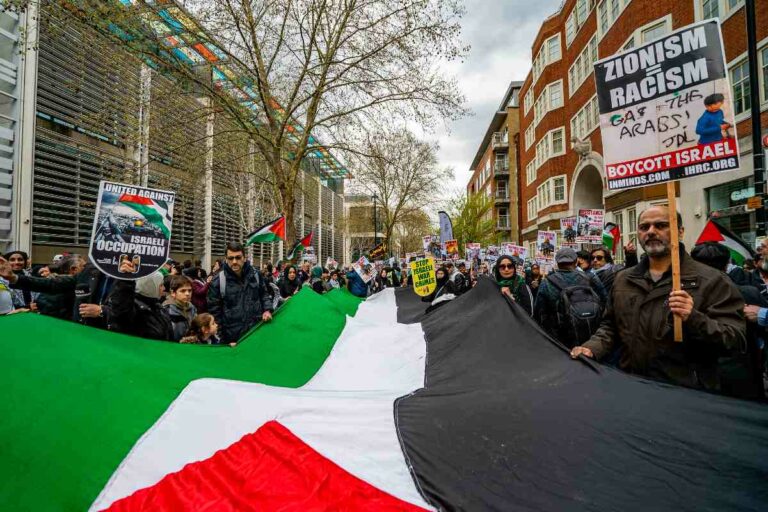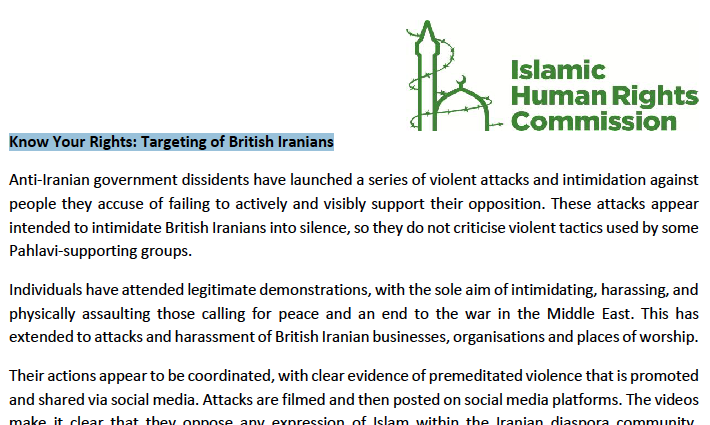—————————————————–
Islamic Human Rights Commission
—————————————————–
24 February 2010
Update Alert: Egypt –UN UPR reviews human rights records of Egypt
Contents
1. Summary
2. Background
1. Summary
Egypt’s human rights record was reviewed by the United Nations Human Rights Council (HRC) on 17 February 2010. A newly established body of HRC; Universal Periodic Review (UPR) reviewed the human rights record of Egypt over the past four years.
A number of key issues were overlooked by the delegates of Arab countries who merely praised the efforts of the Egyptian government.
A total of 165 recommendations were submitted by the National Council for Human Rights (NCHR) to the Egyptian government, from which Egypt accepted to adopt only 119 of them. Egypt has been selective in accepting and rejecting various human rights reforms. Egypt will come under review again within the next four years therefore the government must demonstrate that it has implemented the recommendations.
Egyptian human rights NGOs stressed that those recommendations accepted by Egypt were loose and vague and those that related to abolishment of the Emergency law and torture were rejected.
2. Background
UPR reviewed the human rights record of Egypt which came under the review by the United Nations Human Rights Council on 17th February 2010. Representatives of the Egyptian government and of the human rights organizations attended in order to comment on the government’s report and review the shadow report.
The Egyptian government received severe criticisms and was condemned by many western countries including France, Germany, Norway, Australia, Canada and USA for operating under the State of Emergency law and other matters such as torture, poor prison conditions and the lack of free and fair elections.
Egypt attempted to hide its human rights violations by getting delegates of Arab countries (such as KSA, Lebanon, Morocco, Algeria, Palestine, AUE, Kuwait, Tunisia and Syria) to praise the efforts of the Egyptian government in the promotion and protection of human rights. However, this attempt failed as a number of NGOs promptly refuted the statements by these Arab states and submitted recommendations.
The Egyptian government accepted some recommendations regarding civil and political rights and rights of women and children. In addition, it accepted the abolishment of laws that allow imprisonment of journalists for exercising their right to freedom of expression. The Egyptian government agreed not to use the Emergency laws against journalists and bloggers.
Egypt also agreed on ensuring full observance of the Declaration on Human Rights Defenders and to enable human rights organisations to monitor elections and promote legal-political participation of women including the judiciary. Most importantly, the Egyptian government accepted to increase efforts to combat torture and to ensure that the definition of torture was compatible with the Convention against Torture.
Further, the Egyptian government rejected some important human rights reforms including the release of current bloggers and human rights defenders detained under the Emergency Law. However it agreed that NGOs and human rights defenders’ activities are not restricted or their ability to raise funds is impeded.
Egypt rejected the recommendation to abolish the State of Emergency and to abstain from introducing measures of the Emergency law into the Constitution, however it agreed on the proposal of Pakistan and Sudan to include the Emergency Law in the Constitution as a form of the anti-terrorism law. This is an extremely worrying development as it may lead to the introduction of draconian anti-terrorism laws which would serve to suppress the opposition. Instead of solving the problem of the Emergency Law; the proposal would simply re-name the Emergency Law with anti-terrorism laws.
After accepting those recommendations, the Egyptian government should develop a concrete action plan to improve the human rights situation. Egypt should lift the State of Emergency and end torture in police stations and prisons and should instigate change by holding free and fair parliamentary and presidential elections. The Egyptian government should immediately start implementing these recommendations through effective measures and mechanisms within a specified timeframe.
——————————————————————————————
For more information, please contact the office on the numbers or email below
——————————————————————————————
IHRC is an NGO in Special Consultative Status with the Economic and Social Council of the United Nations.
Please help IHRC by visiting https://www.ihrc.org.uk/catalog and making a donation or buying an item from our on-line store.
If you want to subscribe to the IHRC list please send an email to subscribe@ihrc.org
If you want to unsubscribe from the IHRC list please send an email from your subscribed email address to unsubscribe@ihrc.org
If you are reusing this alert, please cite the source.
For more information, please contact the office on the numbers or email below.
“And what reason have you that you should not fight in the way of Allah and of the weak among the men and the women and the children, (of) those who say: Our Lord! Cause us to go forth from this town, whose people are oppressors, and give us from Thee a guardian and give us from Thee a helper.”
Holy Qur’an: Chapter 4, Verse 75
Join the Struggle for Justice. Join IHRC.
Islamic Human Rights Commission
PO Box 598
Wembley
HA9 7XH
United Kingdom
Telephone (+44) 20 8904 4222
Fax (+44) 20 8904 5183
Email: info@ihrc.org
Web: www.ihrc.org






